Editor’s Note:
This much-expanded version of a previously-published essay on Knut Hamsun is chapter 6 of Kerry Bolton’s Artists of the Right: Resisting Decadence, forthcoming from Counter-Currents.
Knut Hamsun, 1859–1952, has had a decisive impact on the course of twentieth century literature, both in Europe and America, yet was for decades little discussed let alone honored even in his native Norway.
Ernest Hemingway tried to emulate him as did Henry Miller, who called Hamsun “the Dickens of my generation.” Thomas Mann wrote, “never has the Nobel Prize been awarded to one so worthy of it.” Herman Hesse called Hamsun his favorite author. Admired by H. G. Wells, Kafka, and Brecht,[1] Hamsun always enjoyed a great following not only in Germany but particularly in Russia, where he was lauded especially by Maxim Gorky. Even inside the Communist State Hamsun continued to be published despite his politics, and he remained an influence on such Bolshevik luminaries as Aleksandr Kollontai and Illya Ehrenburg.[2]
Origins
Hamsun was born Knut Pedersen of an impoverished peasant family of seven children on August 4th, 1859. His father was a farmer and a tailor; his mother’s lineage was of Viking nobility. Knut had a hard upbringing on his uncle’s farm where he was sent when he was nine. But his uncle also ran the local library, which gave him the chance to begin his self-education.[3]
He left his uncle’s farm in 1873, and over the next few years worked at a variety of jobs, laboring, teaching, and clerical, as he widely journeyed about.[4]
America
At 18 he had published his first novel called The Enigmatic One, a love story.[5] He then paid for the publication of another novel Bjorger.[6] But acknowledgment as a writer was a decade away, as there was then little interest in his peasant tales.
In 1882 Knut traveled to the USA, joining the great Norwegian emigration to that country. Between numerous jobs he was able to get some newspaper articles published and began a series of lectures on authors among the Norwegian community.[7] From this early start, Hamsun wrote as an observer of life. He was the first to develop the novel based on the psychology of characters. Hamsun wrote of what he saw and felt particularly identifying with the workers and the tramps. But he was soon disillusioned with America, despite his initial wonder, and he expressed his disgust for American life in articles for Norwegian newspapers[8] upon his return.[9]
In the first sentence of his first article on America[10] Hamsun described the country as “the Millionaires’ Republic,” a reference to the manner by which elections are based on money,[11] and where the “diseased an degenerate human raw material stream every day from all over the world.” Alluding to principles that are today familiarly called “the American Dream,” Hamsun states that the immigrant is soon disappointed when “the principles do not deliver what they promise.”
He was skeptical about the liberty fetish upon which the American ethos is proclaimed, stating that it is in practice not so much a matter of having “liberty” as “taking liberties.”[12] The purpose of being American is to fulfill a “carnivorous, satiating existence, with the ability to afford intense sensual pleasures . . .”[13]
What now seems particularly prescient, Hamsun, in criticizing the “machinelust” of Americans alludes with a mixture of amazement and abhorrence to having eaten even an egg “from a Brooklyn egg factory” (Hamsun’s emphasis),[14] perhaps something that might have seemed pathological for a youthful Scandinavian of country stock.
Hamsun’s next article for Aftenpost centered on New York, and focused on what can be considered the vulgarity of American city-dwellers in comparison to those in Europe; their loudness and their lack of etiquette.[15] “New Yorkers know little about literature or art.”[16] The theater is popular but the “level of dramatic art is so low.”[17]
Hamsun’s first major literary work came in 1888 when he succeeded in getting published a short story in a magazine, which was to form part of his novel, Hunger. The story gained him access to the literary scene in Copenhagen. Hamsun became a celebrity among the young intellectuals. He was invited to lecture before university audiences.[18]
He was commissioned to write a book on America in 1889 setting aside the completion of Hunger. The result was The Cultural Life of Modern America,[19] based on his second trip to the USA in 1886, which had been prompted by his desire to make a literary mark for himself there.[20]
By 1888 he was so repelled by the USA, that he took to wearing a black ribbon in sympathy with four German anarchist immigrants[21] who had been sentenced to death for the Haymarket bombing in Chicago, 1886.
He left a departing message, giving a two-hour lecture on the cultural vacuity of America.[22]
Despite his destitution upon settling in Copenhagen, he wrote to a friend: “How pleased I am with this country. This is Europe, and I am European—thank God!”[23]
It was two lectures on America at the University of Copenhagen that formed the basis of the aforementioned Cultural Life of Modern America. Nelson remarks of Hamsun’s particular disgust, which might to many readers seem completely relevant to the present time: “In particular he was offended by the exaggerated patriotism of Americans, their continual boasting of themslevs as the freest, most advanced, most intelligent people anywhere–boasting from which the foreigner could not escape.”[24]
Hamsun attacked the crass materialism of the USA. He despised democracy as a form of despotism, abhorring its leveling nature and mob politics. America is a land where the highest morality is money, where the meaning of art is reduced to its cash value. He also expresses his misgivings about the presence of Africans in the USA. The Civil War is described as a war against the aristocracy by northern capitalists. He writes: “Instead of founding an intellectual elite, America has established a mulatto stud farm.”
Literary Eminence
Resuming the writing of Hunger after his musings on America, this appeared in 1890. It has been described as one of the great novels of urban alienation. Like much of his writing it is partly autobiographical. It centers on a young budding writer trying to fend off poverty, wandering the streets in rags, but in some odd way enjoying the experiences despite the hardship. Through an act of will the character maintains his identity.
This was perhaps the first novel to make the workings of the mind the central theme. It was a genre he was to continue experimenting with over the next ten years. Contra orthodox psychological theories, Hamsun held that a diversity of separate personality types within the individual is a desirable state of being. He wrote of this in regard to his aim for literature: “I will therefore have contradictions in the inner man considered as a quite natural phenomenon, and I dream of a literature with characters in which their very lack of consistency is their basic characteristic.”[25]
Hamsun’s next great novel was Mysteries,[26] virtually a self-portrait. One reviewer described Hamsun as expressing “the wildest paradoxes,” a hatred of bourgeois academics and of the masses. The principal character, Nagel, is presented in the form of free flowing thought associations and a stream of consciousness.[27]
Here Hamsun identifies himself as “a radical who belongs to no party, but is an individual in the extreme.”[28] The book caused an uproar among literary circles, but it sold well.
Having outraged the literary establishment, Hamsun next set about critiquing the younger coterie of writers as arrogant and talentless wastrels, whom he represents in Shallow Soil[29] as “a festering sore on the social organism of the Norwegian capital,” in the words of Prof. Wiehr.[30]
Here Hanka Tidemand, a liberated and modern woman of the type detested by Hamsun, finds her true nature back with her hard working husband and children, after an affair with an artist. She realizes her mistaken course, on the verge of divorce, when she sees her children. Here Hamsun sets out his constant theme of rediscovering one’s roots in the simple life, in family and, in children. The well-meaning Mr Tidemand has his wife Hanka leave after she is seduced by one of the bohemian parasites.
[Tideman’s] regard for the individual liberty of his wife amounts really to a fault. He fails to see, however, the grave danger which is threatening Hanka and believes to be promoting her true happiness in according her perfect freedom. His devotion to her never ceases, and when she at last repents, he makes reconciliation easy for her. . . .
Hanka is evidently the product of a misdirected striving for emancipation; she seems to acknowledge no duty except the duty to herself. [31]
The Kareno trilogy of plays (At the Gates of the Kingdom, Evening Glow, and The Game of Life)[32] focuses Hamsun’s growing anti-democratic sentiment in the character of Ivar Kareno, a young philosopher who states:
I believe in the born leader, the natural despot, not the man who is chosen but the man who elects himself to be ruler over the masses. I believe in and hope for one thing, and that is the return of the great terrorist, the living essence of human power, the Caesar.[33]
By now, Hamsun had become a celebrity, cheered in the streets by crowds although he despised the attention, but several decades away from being honored with a Nobel Prize
The Growth of the Soil
The Growth of the Soil is a remarkable book for those who have a yearning for the timeless in a world of the superficial and the transient. Published in 1917, it was the work that was cited when Hamsun was awarded the Nobel Prize for Literature in 1920.
This is the world of a rough, coarsely-featured farmer Isak, and a woman, Inger, who happened to come by from across the valley, stay with him to sire a children and help Isak work the land, raise goats, potatoes, corn, milk the cows and goats, make cheese, and subsist at one with nature.
Isak and Inger are archetypes of the peasant; the antithesis of the New Yorker and the archetypical “American” described in Hamsun’s essays on the USA.
The sense of a day-by-day part of eternity lived by Isak and Inger is captured, juxtaposing their lives with the grain they sow and the earth they till, as part of a single rhythm that has existed for centuries:
For generations back, into forgotten time, his fathers before him had sowed corn, solemnly, on a still, calm evening, bets with a fall of warm and gentle rain, soon after the grey goose flight. . . .
Isak walked bare headed, in Jesus’ name, a sower. Like a tree stump to look at, but in his heart like a child. Every cast was made with care, in a spirit of kindly resignation. Look! The tiny grains that are to take life and to grow, shoot up into ears, and give more corn again; so it is throughout the earth where corn is sown. Palestine, America, the valleys of Norway itself—a great wide world, and here is Isak, a tiny speck in the midst of it all, a sower. Little showers of corn flung out fanwise form his hand; a kindly clouded sky, with a promise of the faintest little misty rain.[34]
The woman as mother is the highest of peasant values, and indeed of the fulfillment of women, in antithesis to the “liberated woman” that was becoming evident in Hamsun’s time as a symptom of a culture’s decay, a type already described by Hamsun in Shallow Soil and elsewhere.
The rearing of children is the purpose of Being of the wife and mother, as much as that might be sneered at now, but as Spengler noted, there is nothing more important than the continuation of a family lineage, generation-after-generation, and one might add—interestingly—the same values hold as true for the aristocrat as for the peasant; there is no more dread than being the last of a family’s line. Hence, we see something of this feeling described by Hamsun:
She was in full flower, and constantly with child. Isak, himself, her lord and master, was earnest and stolid as ever, but he had got on well, and was content. How he had managed to live until Inger came was a mystery . . . now, he had all that a man can think of in his place in the world.[35]
The feeling is described by Oswald Spengler in The Hour of Decision, which captures the same intent that Hamsun was expressing in drama:
A woman of race[36] does not desire to be a “companion” or a “lover,” but a mother; and not the mother of one child, to serve as a toy and a distraction, but of many; the instinct of a strong race speaks in the pride that large families inspire, in the feeling that barrenness is the hardest curse that can befall a woman and through her the race . . .[37]
This is precisely the type of woman that Inger represents: “She was in full flower, and constantly with child . . .”
A man wants stout sons who will perpetuate his name and his deeds beyond his death into the future and enhance them, just as he has done himself through feeling himself heir to the calling and works of his ancestors.[38]
This organic conception of family, an instinct during the “Spring” and “Summer” epochs of a civilization, becomes atrophied during the “Autumn” and “Winter” epochs, as Spengler aptly terms the morphological cycles of a culture; which is of course the situation today, and was becoming apparent during Hamsun’s time. The culture-problem addressed by Hamsun in Shallow Soil, etc., where the “emancipated woman” leaves her family, is described by Spengler:
The meaning of man and wife, the will to perpetuity, is being lost. People live for themselves alone, not for future generations. The nation as society, once the organic web of families, threatens to dissolve, from the city outwards, into a sum of private atoms, of which each is intent on extracting form his own and other lives the maximum of amusement–panem et cicenses. The women’s emancipation of Ibsen’s time wanted, not freedom from the husband, but freedom from the child, from the burden of children, just as men’s emancipation in the same period signified freedom from the duties of family, nation, and State.[39]
Hamsun addressed a matter of land ownership and purchase, as it had been the habit of the tillers to simply stake out a plot of land and work it, without thought as to how and where to purchase it. Amidst the cycles of struggle, drought, crop failures, births of children, and crop recovery, and the contentedness of Isak and Inger and their family amidst it all, an official calls upon them one day to enquire as to why Isak never bought the land.
Buy? What should he buy for? The ground was there, the forest was there; he had cleared and tilled, built up a homestead in the midst of a natural wilderness, winning bread for himself and his, asking nothing of any man, but working, and working alone.[40]
The district sheriff’s officer finally calls by, looking at the vast tracts of tilled land, and asking why Isak had never come to him to purchase it. Soon after a bit of verbal sophistry, Isak begins to see how the official must be correct. Asking about “boundaries,” Isak had only thought in terms of how far he could see and what he could work. But the State required “definite boundaries,” “and the greater the extent, the more you will have to pay.” To all of this, Isak, could only acknowledge with “Ay.”[41]
From there, the simple life of Isak and Inger is confronted with a bureaucratic muddle, with questions on the money-value of the land, its waters, the potential for fishing, and the possibility of ores and metals.
Then civilization reaches Isak and Inger in the form of the telegraph (which becomes a metaphor for “civilization”) which is to go through his land, and for which he would be paid to upkeep the lines. [42] Furthermore, there was a copper mine in the hills that was to be bought from Isak.[43] Despite the money that now comes to Isak, he remains always a peasant, still toiling, knowing that is who he is and not wanting to be anything else:
Isak understood his work, his calling. He was a rich man now, with a big farm, but the heavy cash payments that had come to him by a lucky chance he used but poorly; he put the money aside. The land saved him. If he had lived down in the village, maybe the great world would have affected even him; so much gaiety, so many elegant manners and ways; he would have been buying useless trifles, and wearing a red Sunday shirt on weekdays. Here in the wilds he was sheltered from all immoderation; he lived in clear air, washed himself on Sunday mornings, and took a bath when he went up to the lake. Those thousand Daler—well, ’twas a gift from Heaven, to be kept intact. What else should he do? His ordinary outgoings were more than covered by the produce of his fields and stock.[44]
The copper mining, which went to Swedish ownership, began encroached increasingly, much to the distress of the villagers. Elesuesu, Isak and Inger’s eldest son, having spent much time away had returned ruined by civilization, improvident,
Poor Eleseus, all set on end and frittered away. Better, maybe, if he’d worked on the land all the time, but now he’s a man that has learned to write and use letters; no grip in him, no depth. For all that, no pitch-black devil of a man, not in Jove, not ambitious, hardly nothing at all is Eleseus, not even a bad thing of any great dimensions.
Something unfortunate, ill-fated about this young man, as if something were rotting him from within. . . . the child had lost his roothold, and suffered thereby. All that he turns to now leads back to something wanting in him, something dark against the light.[45]
Eleseus represents that type which becomes predominate in the “Winter” cycle of a civilization, when the City and money form the axis of living; where the peasant and the artisan emigrant from the country to the city and become either part of the rootless, alienated proletarian mass or a part of the equally rootless bourgeois. The same contrast that Hamsun dramatized was examined several years later by Spengler in his seminal study of cultural morphology, The Decline of The West:
Beginning and end, a peasant cottage and a tenement block are related to one another[46] as soul and intellect, as blood and stone . . . now the giant city sucks the country dry, insatiably and incessantly demanding and devouring fresh streams of men, till it dies in the midst in the midst of an almost uninhibited waste of country.[47]
Hamsun concludes with Geissler, the district official who had once come on behalf of the State to measure the worth and boundaries of Isak’s land, and then to buy the copper mine from Isak, regretting the impact the mining had had upon the village, offering this observation to Isak’s younger son Sivert who had stayed with the land, which encapsulates Hamsun’s world-view and moral of the story:
Look at you folk at Sellanraa,[48] now; looking up at blue peaks every day of your lives; no new-fangled inventions about that, but fjeld and rocky peaks, rooted deep in the past—but you’ve them for companionship. There you are, living in touch with heaven and earth, one with them, one with all these wide, deep-rooted things. No need of a sword in your hands, you go through life bareheaded, barehanded, in the midst of a great kindliness. Look, Nature’s there, for you and yours to have and enjoy. Man and Nature don’t bombard each other, but agree; they don’t compete, race one against the other, but go together. There’s you Sellanraa folk, in all this, living there. Fjeld and forest, moors and meadow, and sky and stars—oh, ’tis not poor and sparingly counted out, but without measure. Listen to me, Sivert: you be content! You’ve everything to live on, everything to live for, everything to believe in; being born and bringing forth, you are the needful on earth. ’Tis not all that are so, but you are so; needful on earth. ’Tis you that maintain life. Generation to generation, breeding ever anew; and when you die, the new stock goes on. That’s the meaning of eternal life. What do you get out of it? An existence innocently and properly set towards all. What you get out of it? Nothing can put you under orders and lord it over you Sellanraa folk, you’ve peace and authority and this great kindliness all round. That’s what you get for it. You lie at a mother’s breast and suck, and play with a mother’s warm hand. There’s your father now, he’s one of the two-and-thirty thousand. What’s to be said of many another? I’m something, I’m the fog, as it were, here and there, floating around, sometimes coming like rain on dry ground. But the others? There’s my son, the lightning that’s nothing in itself, a flash of barrenness; he can act. My son, ay, he’s the modern type, a man of our time; he believes honestly enough all the age has taught him, all the Jew and the Yankee have taught him; I shake my head at it all. But there’s nothing mythical about me; ’tis only in the family, so to speak, that I’m like a fog. Sit there shaking my head. Tell the truth–I’ve not the power of doing things and not regretting it. If I had, I could be lightning myself. Now I’m a fog.[49]
Hamsun explicitly identified the peasantry as the well-spring of a healthy culture, the embodiment of those ever-relevant values that contrast the values of decay represented by the city, the bourgeois, proletarianization, urbanization and industrialization:
A tiller of the ground, body and soul; a worker on the land without respite. A ghost risen out of the past to point the future, a man from the earliest days of cultivation, a settler in the wilds, nine hundred years old, and, withal, a man of the day.[50]
In the August Trilogy,[51] as in The Growth of the Soil and elsewhere, Hamsun had taken up the concerns of encroaching mechanization and cosmopolitanism, epitomized by the USA, and instead championed traditional values, such as those of localism and the rural. Nelson remarks that Hamsun was espousing an agrarian, anti-capitalist conservatism that was becoming popular among the literati in both Europe and America.
Quisling and Hitler
With such views forming over the course of decades, and achieving wide acclaim, Hamsun’s support for Quisling and for the German occupation of Norway during World War II, is consistent and principled within his historical and cultural context.
Hamsun disliked the British as much as the “Yankees” and the Bolsheviks. He had been appalled by the British war against the Boers, which he would surely have regarded as a war by a plutocratic power against an entire folk who epitomized a living remnant of the type portrayed by Isak in The Growth of The Soil.[52] He had also alluded to the “Jews”[53] as harbingers of modernism and cosmopolitanism.
In contrast to Britain, the USA and the USSR, National Socialist Germany claimed to champion the peasantry as the eternal well-spring of a healthy culture, very much in keeping with Hamsun’s views in The Growth of The Soil and elsewhere. This is why the National Socialists saw Hamsun as a fellow-traveler.
In 1933 Walther Darré, a widely recognized agricultural expert, had been appointed Reich Minister of Food and Agriculture, and also had the title “National Peasant Leader.” Goslar was named the “National Peasant City,” and pageants were held to honor the peasantry. Practical measures to deal with the crisis on the land were enacted immediately, including the Hereditary Farm Law, which protected the peasantry from foreclosure and ensured the family inheritance. [54]
Alfred Rosenberg, the primary National Socialist philosopher in Germany, had already paid tribute to Hamsun in his seminal Myth of the Twentieth Century (1930), with specific reference to The Growth of the Soil, as expressing the “mystical-natural will” of the peasant better than any other living artist:
No one knows why, with great effort, the farmer Isak cultivates one piece of land after another in god-forsaken regions, or why his wife has joined him and gives birth to his children. But Isak follows an inexplicable law. He carries on a fruitful quest out of a mystical primal will. At the end of his existence he will certainly look back in astonishment at the harvest of his activity. The Growth of the Soil is the great present day epic of the Nordic will in its eternal primordial form. Nordic man can be heroic even behind the wooden plow.[55]
Such was the background when in 1934 Hamsun wrote an article, “Wait and See,” in which he attacked the opponents of National Socialist Germany and asked if a return of Communists, Jews, and Bruning to Germany were preferable. In 1935 he sent a greeting to Der Norden, the organ of the Nordic Society, supporting the return of the League of Nations mandate, Saarland, to Germany, and from the start supported Germany privately and publicly wherever he felt able.[56] Hamsun and his wife Marie remained particularly close to the Nordic Society, which was avid in promoting Hamsun’s works.[57]
In April 1940 the Germans occupied Norway to secure the sea route, after the British had on several occasions breached Norwegian neutrality, included mining of Norway’s territorial waters, about which the Norwegian Government impotently protested. [58]
In 1933, former Defense Minister Vidkun Quisling had established his own party Nasjonal Samling (National Unification). Hamsun had formed a good impression of Quisling since 1932, and wrote in support of Nasjonal Samling’s electoral appeal in 1936 in the party newspaper Fritt Folk. His wife Marie was the local representative of the party.[59]
Ironically, Quisling, his very name becoming synonymous with “traitor,”[60] was the only politician who had campaigned before the war for a strong defense capability, and was particularly pro-British, having been honored by the British Government for looking after British interests in Russia after the Bolshevik Revolution, where he had been the principal aide to the celebrated Dr. Fridtjof Nansen, who was directing the European Famine Relief to Russia in 1921, with Quisling serving as Secretary for the Relief Organization.[61]
Quisling sought an alliance of Nordic nations including Germany and Britain, in what he called a “Northern Coalition,” against Communism.[62]
The only strong resistance against the German invasion came from a garrison commanded by an officer who belonged to Quisling’s party. The King and Government quickly fled, leaving Norway without an administration or any voice to negotiate with the Germans.[63] Quisling, like Petain in France, and many other figures throughout Europe who were to be branded and usually executed as “traitors,” stepped in to fill the void as the only political figure willing to try and look after Norwegian interests under the occupation. He declared himself Minister President, but because he was not a pliant tool he did not enjoy the confidence of the German military authorities. He was soon forced to resign in favor of an administrative council under German control, but eventually regained a measure of authority.[64]
Meanwhile, Hamsun urged Norwegians to rally behind Quisling so that some form of sovereignty could be restored. He described Quisling as “more than a politician, he is a thinker, a constructive spirit.”[65]
Hamsun’s longest wartime article appeared in the German language Berlin-Tokyo-Rome periodical in February 1942, where he wrote: “Europe does not want either the Jew or their gold, neither the Americans nor their country.”[66]
Despite Hamsun’s pro-German sentiment, he championed the rights of his countrymen, including those who resisted the German occupation. He attempted in intercede for the writer Ronald Fangen, and many others, who had been arrested by the Gestapo.[67]
In 1943 Hamsun and his wife accepted the invitation of Goebbels to visit Germany. Goebbels wrote of Hamsun as being “the embodiment of what an epic writer should be.” Hamsun was equally impressed with the Reich Minister and sent Goebbels the Nobel medal he had been awarded, which Goebbels accepted as Hamsun’s “expression of solidarity with our battle for a new Europe, and a happy society.”[68]
Whilst en route to Norway from Germany, Hamsun met Hitler, a meeting which did not go well, as Hamsun took the opportunity to condemn the military administration of Norway which had rendered Quisling powerless, and they parted in an unfriendly manner[69]
However, Hamsun continued to support Germany, and expressed his pride when a son, Arild, joined the Norwegian Legion of the Waffen SS.[70]
In 1945 several strokes forced Hamsun to quiet his activities. But with Hitler’s death Hamsun defiantly wrote a tribute for the press:
I am not worthy to speak his name out loud. Nor do his life and his deeds warrant any kind of sentimental discussion. He was a warrior, a warrior of mankind, and a prophet of the gospel of justice for all nations. He was a reforming nature of the highest order, and his fate was to arise in a time of unparalleled barbarism, which finally failed him. Thus might the average western European regard Hitler? We, his closest supporters, now bow our heads at his death.[71]
Post-War Persecution
Membership of Quisling’s party was declared a criminal offense and Hamsun’s sons Tore and Arild[72] were among the first of 50,000 Norwegians to be arrested as “Nazis” (sic) or as “collaborators.”[73] Marie and Knut were arrested a few weeks later. Due to his age, at 86, Hamsun was sent to a hospital rather than to a prison, although the stress and treatment struck considerably at his still quite good health. He was defiant and stated to the authorities that he would have assisted the Germans more if he could.[74]
He was sent to an old folks home where he was a popular guest. However, prosecuting Norway’s leading cultural figure, like America’s dealings with Ezra Pound, was an awkward matter. Consequently, Hamsun spent 119 days in a psychiatric clinic. The psychiatrists found in him, as in the characters of his novel’s, a complex interplay of traits, but the most prominent of all they described was his “absolute honesty.” The conclusion was that Hamsun was not insane but that he was mentally impaired. Hence, what Ferguson calls “an embarrassing situation,” given that Hamsun was “first and foremost [Norway’s] great writer, their national pride, a loved and admired and never quite respectable ancient child,” was dealt with by concluding that his support for Germany could be put down to “senility.” This was the party-line taken up by the press throughout the world.[75]
Reading Hamsun’s post-war autobiographical On Overgrown Paths, written amidst the threats of prosecution and the interrogations, shows him to be perfectly lucid. Hamsun, as this last writing shows, although deaf and going blind, retained his mental faculties impressively, along with a certain fatalism and humor.[76]
Although the Attorney General opted not to proceed against Hamsun, the Crown wished to try him as a member of Nasjonal Samling. To Hamsun the action at least meant that he was being officially acknowledged as of sound mind. He was fined 425,000 kroner.[77]
With ruinous fines hanging over them, the Hamsuns returned to their farm Norholm.[78] On appeal the fine was reduced to 325,000 kroner,[79] his persistence and courage in speaking on behalf of imprisoned Norwegians under the German Occupation being a mitigating factor. Tore was also fined, and his brother Arild was jailed until 1949 for his membership of the Norwegian Legion. Marie Hamsun was released from jail in 1948.[80]
On Overgrown Paths was published in 1949 and became an immediate best seller,[81] although Hamsun ended his days in poverty on his farm. He died in his sleep on February 19, 1952.
When the Robert Ferguson’s biography appeared in 1987, he wrote that while Norway is especially keen to honor its writers, “Hamsun’s life remains largely uncommemorated by officialdom.” [82] However, two decades later, in 2009:
In Norway, the 150th birthday of Knut Hamsun will be celebrated by theatrical exhibitions, productions, and an international conference. One of the main squares of Oslo, located just beside the national Opera, will henceforth bear his name. A monument will finally be erected in his honor. One might say that the Norwegians have just discovered the name of their very famous compatriot. Recently, a large number of towns and villages have named squares and streets for him. At the place where he resided, in Hamaroy, a “Knut Hamsun Center” will officially open on August 4th, the day of his birth. On that day, a special postage stamp will be issued. Yet Knut Hamsun was denounced and vilified for decades by the Norwegian establishment.[83]
Hamsun’s defiant commitment to Quisling and to Germany during the war was a logical conclusion to ideas that had been fermenting and widely read and applauded over a period of half a century. Yet when it came time to act on those ideals, of fighting materialism, plutocracy, and communism, for the restoration of rural and peasant values against the encroaching tide of industrialism and money, Hamsun’s fellow-countryman reacted with outrage. Hamsun, unlike some of the pre-war supporters of National Socialism or Fascism, for better or for worse, never did compromise his values.
Notes
[1] Robert Ferguson, Enigma: The Life of Knut Hamsun (London: Hutchinson, 1987), p. 300.
[2] Ferguson, Enigma, p. 301.
[3] Ferguson, Enigma, p. 13.
[4] Ferguson, Enigma, p. 21.
[5] Hamsun, The Enigmatic One, 1877.
[6] Hamsun, Bjorger, 1878.
[7] Richard C. Nelson, Knut Hamsun Remembers America: Essays and Stories: 1885–1949 (Missouri: University of Missouri Press, 2003), pp. 4–5.
[8] Knut Hamsun, “Letters from America,” Knut Hamsun Remembers America, p. 7.
[9] Ferguson, Enigma, p. 68.
[10] Hamsun, “The American Character,” Aftenposten, Christiania, Norway, January 21, 1885; Knut Hamsun Remembers America, pp. 17–18.
[11] Hamsun, “The American Character,” p. 19.
[12] Hamsun, “The American Character,” p. 14.
[13] Hamusn, “The American Character,” p. 20.
[14] Hamsun, “The American Character,” p. 21.
[15] Hamsun, “New York,” Aftenposten, February 12, 14, 1895; Knut Hamsun Remembers America, pp. 28–29.
[16] Hamsun, “New York,” p. 29.
[17] Hamsun, “New York,” p. 30.
[18] Ferguson, Enigma, p. 101.
[19] Hamsun, The Cultural Life of Modern America, 1889.
[20] Knut Hamsun Remembers America, p. 7.
[21] Knut Hamsun Remembers America, p. 9.
[22] Knut Hamsun Remembers America, p. 9.
[23] Knut Hamsun Remembers America, p. 10.
[24] Knut Hamsun Remembers America, p. 10.
[25] Ferguson, Enigma, p. 124.
[26] Hamsun, Mysteries, 1892.
[27] Ferguson, Enigma, p. 133.
[28] Ferguson, Enigma, p. 138.
[29] Hamsun, Shallow Soil, 1893.
[30] Josef Wiehr, Knut Hamsun: His personality and his outlook upon life (Smith College Studies in Modern Languages, 1922), p. 23.
[31] Wiehr, Knut Hamsun, p. 24.
[33] Ferguson, Enigma, p. 164.
[34] Hamsun, The Growth of the Soil (1920), Book I, Chapter 3. http://ebooks.adelaide.edu.au/h/hamsun/knut/h23g/index.html
[35] Hamsun, The Growth of the Soil, Chapter 4.
[36] It needs to be pointed out that by “race” Spengler did not a biological, or “Darwinistic” conception, but an instinct. “Race” means “duration of character,” including “an urge to permanence.” Oswald Spengler, The Hour of Decision, p. 220.
[37] Oswald Spengler, The Hour of Decision, p. 220.
[38] Oswald Spengler, The Hour of Decision, pp. 220–21.
[40] Hamsun, The Growth of the Soil, Chapter 5.
[41] Hamsun, The Growth of the Soil, Chapter 5.
[42] Hamsun, The Growth of the Soil, Chapter 9.
[43] Hamsun, The Growth of the Soil, Chapter 10.
[44] Hamsun, The Growth of the Soil, Chapter 14.
[45] Hamsun, The Growth of the Soil, Book II, Chapter 11.
[46] “Related to one another” in the sense that they express the analogous features of a culture in its “Spring” High Culture cycle and its “Winter” Late Civilization cycle respectively.
[47] Oswald Spengler, The Decline of The West, 1928 (London: George Allen and Unwin, 1971), Vol. 2, p. 102.
[48] The name of Isak’s farm.
[49] Hamsun, The Growth of the Soil, Book II, Chapter 12.
[50] Hamsun, The Growth of the Soil, Book II, Chapter 12.
[51] Hamsun, August, 1930.
[52] The Boers were–and partly remain–an anomaly in the modern world; the vestige of the bygone era who had to be eliminated as a hindrance to the global economic structure. Hence the recent ideological and economic war against the Afrikaner to destroy his “apartheid” was a continuation of the Boer Wars under other slogans, but with the same aim: to capture the wealth of southern Africa–in the name of “human rights”–for the sake of the same kind of plutocracy which had fought the Afrikaners’ forefathers a century previously.
[53] Hamsun, The Growth of the Soil, Book II, Chapter 12.
[54] Anna Bramwell, Blood and Soil: Walther Darré and Hitler’s Green Party (Buckinghmanshire: The Kensal Press, 1985), p. 91.
[55] Alfred Rosenberg, The Myth of the Twentieth Century, 1930 (Torrance, Cal.: The Noontide Press, 1982), p. 268.
[56] Ferguson, Enigma, p. 326.
[57] Ferguson, Enigma, p. 338.
[58] Ralph Hewins, Quisling: Prophet Without Honour (London: W. H. Allen, 1965), p. 201.
[59] Ferguson, Enigma, p. 333.
[60] Hewins, Quilsing, p. 9. Hewins, a wartime journalist, wrote his biography to amend for the part he had played in portraying Quisling as the epitome of “treason” (p. 11).
[61] Hewins, Quisling, p. 55.
[62] Vidkun Quilsing, Russia and Ourselves (London: Hodden and Stoughton, 1931), p. 275.
[63] Hewins, Quisling, p. 208.
[64] Hewins summarizes the situation when writing: “The whole myth of unprovoked aggression by Germany should be abandoned. It is incredible and does grievous injustice to the ‘quislings’ who are quite wrongly alleged to have engineered the German Occupation. There is no truth in this sinister legend” (Hewins, Quisling, p. 198).
[65] Ferguson, Enigma, p. 357.
[66] Hamsun, “Real Brotherhood,” Berlin-Tokyo-Rome, February 1942; Ferguson, Enigma, p. 351.
[67] Ferguson, Enigma, p. 359.
[68] Ferguson, Enigma, pp. 369–70.
[69] Ferguson, Enigma, pp. 374–75.
[70] Ferguson, Enigma, p. 383.
[71] Hamsun, “Adolf Hitler,” Aftenposten, May 7, 1945, p. 1
[72] Ferguson, Enigma, p. 387.
[73] Hewins, Quisling, pp. 357–58. Hewins notes that these thousands of Norwegians were jailed for years often without charge or trial, interrogated for eight hours a time, subjected to “eeling” (being dragged back and forth across broken stones), and a starvation diet of 800 calories a day. “Many prisoners died of malnutrition or starvation, and limbs swollen from privation were a commonplace. Hundreds, if not thousands, died of dysentery and tuberculosis epidemics. Hundreds more bear the scares of kicking, beating and brutality of their guards” (Hewins, pp. 357–58).
[74] Ferguson, Enigma, pp. 387–88.
[75] Ferguson, Enigma, pp. 389–90.
[76] Hamsun, On Overgrown Paths, 1949 (London: MacGibbon and Kee, 1968).
[77] Ferguson, Enigma, p. 407.
[78] Ferguson, Enigma, p. 408.
[79] Ferguson, Enigma, p. 409.
[80] Ferguson, Enigma, p. 410.
[81] On Overgrown Paths was also published simultaneously in German and Swedish editions. Ferguson, Enigma, p. 416.
[82] Ferguson, Enigma, p. 421.
[83] Robert Steuckers, “Knut Hamsun: Saved by Stalin?,” Counter Currents, http://www.counter-currents.com/2010/07/knut-hamsun-saved-by-stalin/ The title of the Steuckers article refers to Soviet Foreign Affairs Minister Molotov having intervened in 1945 in favor of Hamsun, stating: “it would be regrettable to see Norway condemning this great writer to the gallows.”





 del.icio.us
del.icio.us
 Digg
Digg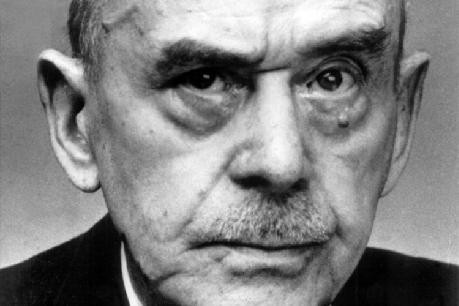
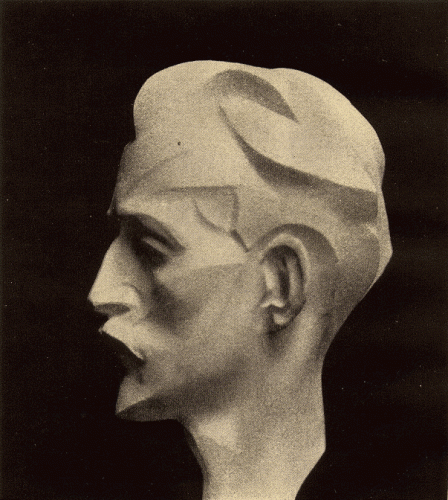

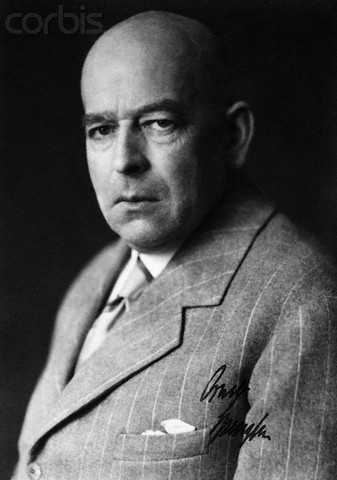 Il y a 75 ans, le 8 mai 1936, Oswald Spengler, philosophe des cultures et esprit universel, est mort. Si l’on lit aujourd’hui les pronostics qu’il a formulés en 1918 pour la fin du 20ème siècle, on est frappé de découvrir ce que ce penseur isolé a entrevu, seul, dans son cabinet d’études, alors que le siècle venait à peine de commencer et que l’Allemagne était encore un sujet souverain sur l’échiquier mondial et dans l’histoire vivante, qui était en train de se faire.
Il y a 75 ans, le 8 mai 1936, Oswald Spengler, philosophe des cultures et esprit universel, est mort. Si l’on lit aujourd’hui les pronostics qu’il a formulés en 1918 pour la fin du 20ème siècle, on est frappé de découvrir ce que ce penseur isolé a entrevu, seul, dans son cabinet d’études, alors que le siècle venait à peine de commencer et que l’Allemagne était encore un sujet souverain sur l’échiquier mondial et dans l’histoire vivante, qui était en train de se faire. 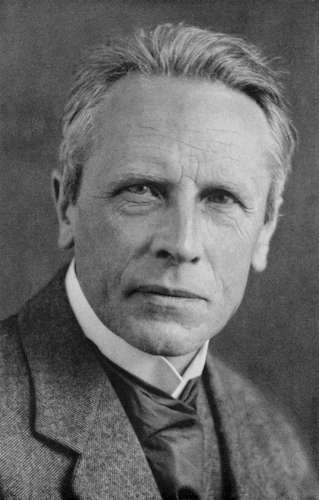 “Dans le tourbillon des innombrables tonalités, perceptibles sur notre planète, les consonances et les dissonances sont l’aridité sublime des déserts, la majesté des hautes montagnes, la mélancolie que nous apportent les vastes landes, les entrelacs mystérieux des forêts profondes, le bouillonement des côtes baignées par la lumière des océans. C’est en eux que le travail originel de l’homme s’est incrusté ou s’est immiscé sous l’impulsion du rêve”.
“Dans le tourbillon des innombrables tonalités, perceptibles sur notre planète, les consonances et les dissonances sont l’aridité sublime des déserts, la majesté des hautes montagnes, la mélancolie que nous apportent les vastes landes, les entrelacs mystérieux des forêts profondes, le bouillonement des côtes baignées par la lumière des océans. C’est en eux que le travail originel de l’homme s’est incrusté ou s’est immiscé sous l’impulsion du rêve”. 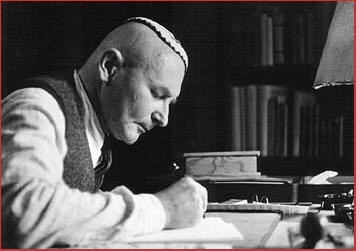
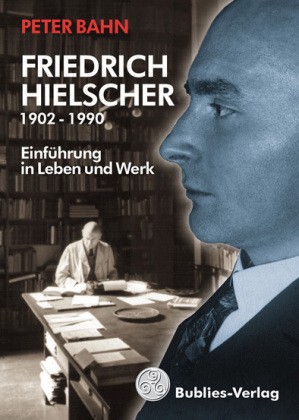
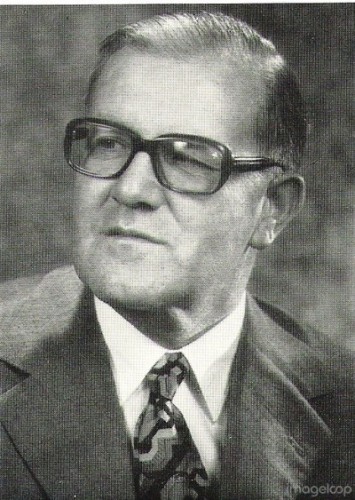
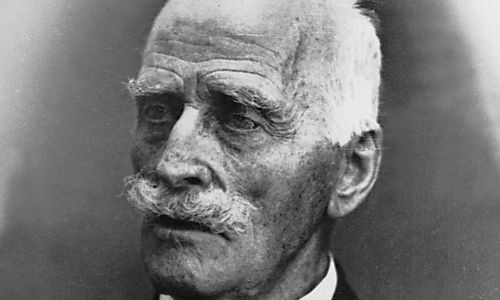
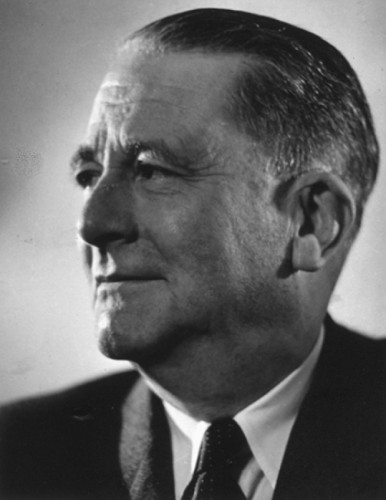
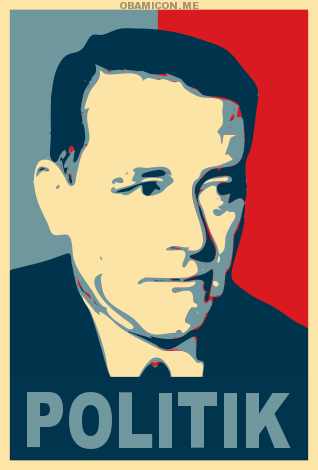 Since 1945 Western nations have witnessed a dramatic reduction in the variety of positions in political theory and jurisprudence. Political argument has been virtually reduced to contests within liberal-democratic theory. Even radicals now take representative democracy as their unquestioned point of departure. There are, of course, some benefits following from this restriction of political debate. Fascist, Nazi and Stalinist political ideologies are now beyond the pale. But the hegemony of liberal-democratic political agreement tends to obscure the fact that we are thinking in terms which were already obsolete at the end of the nineteenth century.
Since 1945 Western nations have witnessed a dramatic reduction in the variety of positions in political theory and jurisprudence. Political argument has been virtually reduced to contests within liberal-democratic theory. Even radicals now take representative democracy as their unquestioned point of departure. There are, of course, some benefits following from this restriction of political debate. Fascist, Nazi and Stalinist political ideologies are now beyond the pale. But the hegemony of liberal-democratic political agreement tends to obscure the fact that we are thinking in terms which were already obsolete at the end of the nineteenth century.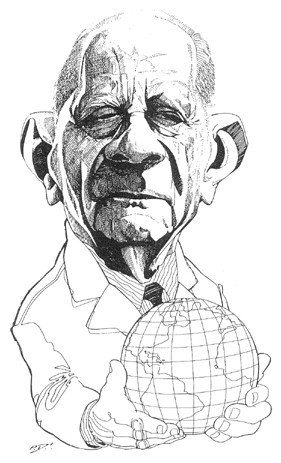
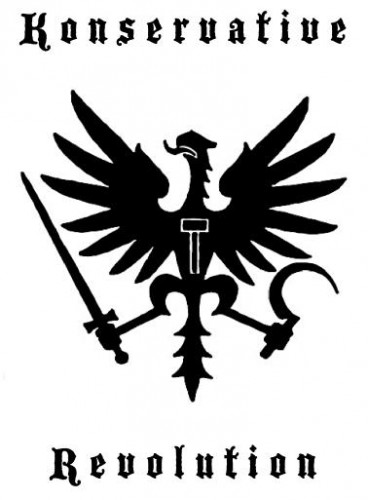
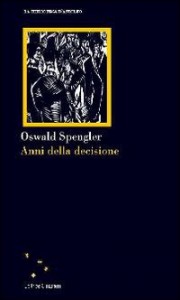
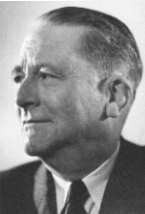 In a certain sense, there have been total wars at all times; a theory of the total war, however, presumably dates only from the time of Clausewitz who would talk of “abstract” and “absolute” wars.”[1] Later on, under the impact of the experiences of the last Great War, the formula of total war has acquired a specific meaning and a particular effectiveness. Since 1920, it has become the prevailing catchword. It was first brought out in sharp relief in the French literature, in book titles like La guerre totale. Afterwards, between 1926 and 1928, it found its way into the language of the proceedings of the disarmament committee at Geneva. In concepts such as “war potential” (potentiel de guerre), “moral disarmament” (désarmement moral) and “total disarmament” (désarmement total). The fascist doctrine of the “total state” came to it by way of the state; the association yielded the conceptual pair: total state, total war. In Germany, the publication of the Concept of the Political has since 1927 expanded the pair of totalities to a set of three: total enemy, total war, total state. Ernst Jünger’s book of 1930 Total Mobilization made the formula part of the general consciousness. Nonetheless, it was only Ludendorff’s 1936 booklet entitled Der Totale Krieg (The Total War) that lent it an irresistible force and caused its dissemination beyond all bounds.
In a certain sense, there have been total wars at all times; a theory of the total war, however, presumably dates only from the time of Clausewitz who would talk of “abstract” and “absolute” wars.”[1] Later on, under the impact of the experiences of the last Great War, the formula of total war has acquired a specific meaning and a particular effectiveness. Since 1920, it has become the prevailing catchword. It was first brought out in sharp relief in the French literature, in book titles like La guerre totale. Afterwards, between 1926 and 1928, it found its way into the language of the proceedings of the disarmament committee at Geneva. In concepts such as “war potential” (potentiel de guerre), “moral disarmament” (désarmement moral) and “total disarmament” (désarmement total). The fascist doctrine of the “total state” came to it by way of the state; the association yielded the conceptual pair: total state, total war. In Germany, the publication of the Concept of the Political has since 1927 expanded the pair of totalities to a set of three: total enemy, total war, total state. Ernst Jünger’s book of 1930 Total Mobilization made the formula part of the general consciousness. Nonetheless, it was only Ludendorff’s 1936 booklet entitled Der Totale Krieg (The Total War) that lent it an irresistible force and caused its dissemination beyond all bounds.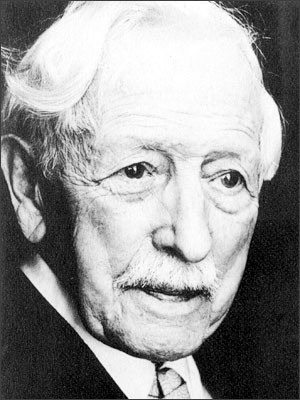 Toen het Derde Rijk ineengestort was hebben heel wat gezellen van het eerste uur gepoogd zich – met min of meer sukses – als slachtoffers van het nationaal-socialisme voor te doen. Anderzijds had de regelrechte nazi-jacht die de overwinnaars ontketenden tot gevolg dat een aantal persoonlijkheden die tot de konservatieve revolutie behoorden en vanaf het begin duidelijk afstand hadden genomen van Hitler, toch werden verdacht, vervolgd en soms zelfs gedood.
Toen het Derde Rijk ineengestort was hebben heel wat gezellen van het eerste uur gepoogd zich – met min of meer sukses – als slachtoffers van het nationaal-socialisme voor te doen. Anderzijds had de regelrechte nazi-jacht die de overwinnaars ontketenden tot gevolg dat een aantal persoonlijkheden die tot de konservatieve revolutie behoorden en vanaf het begin duidelijk afstand hadden genomen van Hitler, toch werden verdacht, vervolgd en soms zelfs gedood.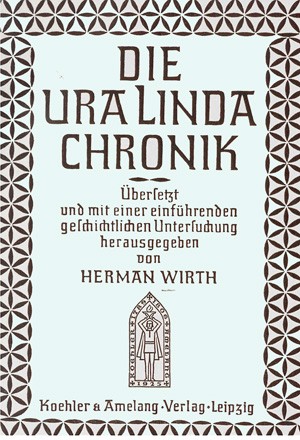 Zijn vriend Dr. Joachim Weitzäcker schrijft: “Na Herman Wirth’s “verwijdering” uit Ahnenerbe, dat hij gesticht had (3), verloor hij in 1938 zijn leerstoel aan de Berlijnse universiteit, omwille van zijn op gewetensbezwaren gegrondveste oppositie en zijn eis tot vrij onderzoek. Hij moest terug naar Marburg en kreeg verbod om nog onderricht te geven, te publiceren en in het openbaar te spreken. Tenslotte leverde de wet van het stilzwijgen zijn naam aan de vergetelheid over…”
Zijn vriend Dr. Joachim Weitzäcker schrijft: “Na Herman Wirth’s “verwijdering” uit Ahnenerbe, dat hij gesticht had (3), verloor hij in 1938 zijn leerstoel aan de Berlijnse universiteit, omwille van zijn op gewetensbezwaren gegrondveste oppositie en zijn eis tot vrij onderzoek. Hij moest terug naar Marburg en kreeg verbod om nog onderricht te geven, te publiceren en in het openbaar te spreken. Tenslotte leverde de wet van het stilzwijgen zijn naam aan de vergetelheid over…”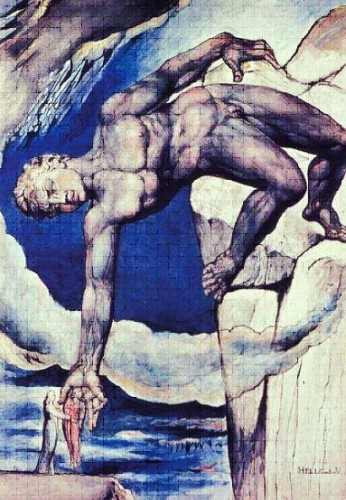
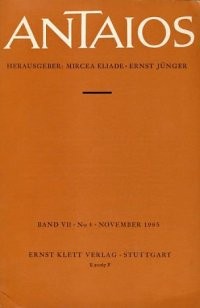 Antaios is uniting Earth and Sea, soil and water without whom both there is no life. Antaios father was Poseidon, the God of Sea and mother Gaia of the Earth. Antaios or Antaeus in Greek means as well ‘’against’’ so in this way ‘’The New Antaios’’ is in cultural and philosophical terms set to make an intellectual bulwark against that what is destroying Our European culture, tradition, heritage, folklore and with that ultimately our roots.
Antaios is uniting Earth and Sea, soil and water without whom both there is no life. Antaios father was Poseidon, the God of Sea and mother Gaia of the Earth. Antaios or Antaeus in Greek means as well ‘’against’’ so in this way ‘’The New Antaios’’ is in cultural and philosophical terms set to make an intellectual bulwark against that what is destroying Our European culture, tradition, heritage, folklore and with that ultimately our roots.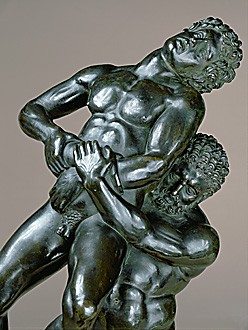 How the time is passing by I am less and less interested in Croatian politics. As a result I won’t be writing in Croatian language anymore since there is no purpose for it. I will rather use and invest my energy, effort and time for something I think will yield certain results than to write constantly for something what will anyway reach just a handful of people or just completely wither away. I have learned that from an example of the members of the ‘’Croatian Historical Revolution’’. Over the years I have read articles by leading Croatian intellectuals and scholars such as Dr. Tomislav Sunić then Dr. Jure Georges Vujić, prof. Amir Riđanović, prof. Petar Bujas (all members of Croatian group similar to G.R.E.C.E. – Arhelinea –
How the time is passing by I am less and less interested in Croatian politics. As a result I won’t be writing in Croatian language anymore since there is no purpose for it. I will rather use and invest my energy, effort and time for something I think will yield certain results than to write constantly for something what will anyway reach just a handful of people or just completely wither away. I have learned that from an example of the members of the ‘’Croatian Historical Revolution’’. Over the years I have read articles by leading Croatian intellectuals and scholars such as Dr. Tomislav Sunić then Dr. Jure Georges Vujić, prof. Amir Riđanović, prof. Petar Bujas (all members of Croatian group similar to G.R.E.C.E. – Arhelinea –